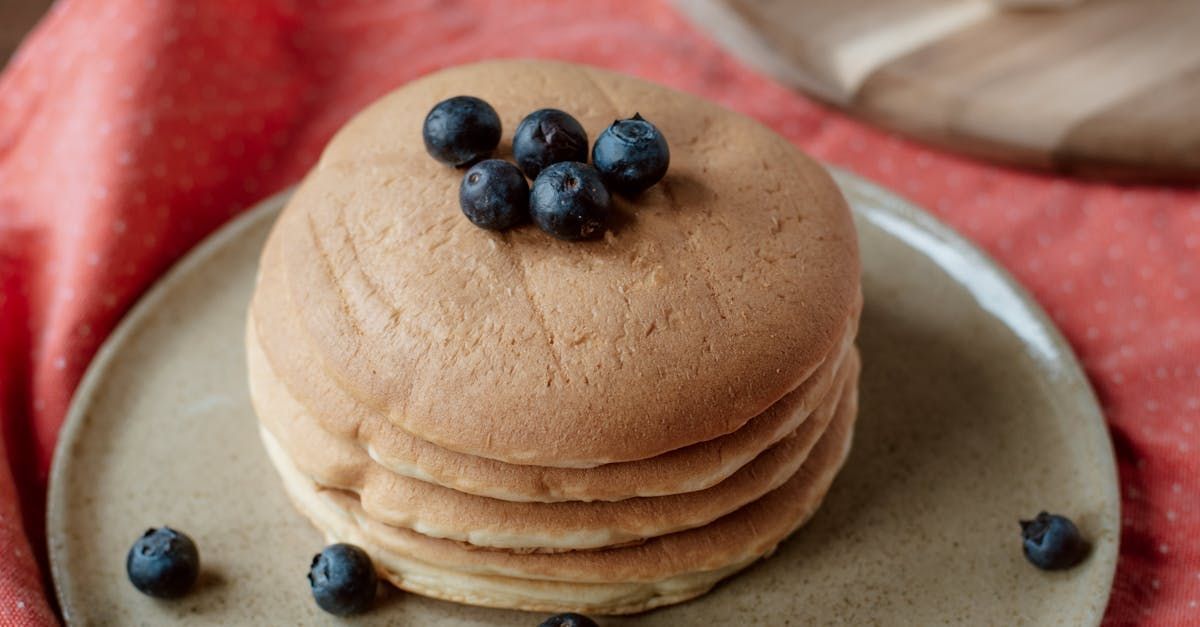
News

Hair loss affects millions of people, and it can happen to men or women of any age. Although hair loss is generally a cosmetic condition, it can take a significant toll on a person’s self-confidence, emotions, and quality of life. Solutions for hair loss should improve those feelings in addition to effectively restoring hair growth. Not all hair loss treatments are equal. It is important to consider the effectiveness, cost, and duration of any solution for regrowing hair. Regenerative treatments, including Platelet Rich Plasma (PRP) and Autologous Exosome Therapy, are two excellent options for patients in our Villanova Stem Cell Therapy office. Stem cell therapy is intended to work for hair loss by reactivating dormant hair follicles and improving scalp health so that hair can grow. Treatments repair damaged follicles, stimulate follicles so that they begin producing hair, and improve blood flow to nourish hair roots. This process can help the scalp return to normal growth cycles and restore the patient’s natural hair. Platelet Rich Plasma (PRP) for Hair Regrowth in Philadelphia Our primary treatment for hair growth is called Platelet Rich Plasma (PRP), which activates your body’s own healing platelets to repair and strengthen hair follicles. PRP contains growth factors that are essential for tissue repair and regeneration. The patient’s own platelets are injected into the scalp to stimulate inactive follicles, thicken hair shaft diameter, extend the growth phase of existing hair, and improve scalp health and blood flow. Because this process uses the patient’s platelets, this treatment is typically very effective. The body does not have to adapt to surgical intervention or chemical injections. It simply recognizes its own platelets and puts them to work. Hair regrowth is completely natural, so there are no sudden changes in appearance. Most people begin to see new hair growth, and thicker existing hair, within the first month. As the follicles begin to work again, hair should fill in over the scalp, producing more noticeable results over the course of a few months to a year. While slow growth may be bothersome for patients who are anxious to restore a full head of hair, the subtle progress of natural growth makes the changes less perceptible to friends and acquaintances. The treatment process itself is minimally invasive. Blood is drawn to collect platelets so that the PRP can be prepared. Appointments take less than an hour with few side effects other than possible minor bruising at the injection sites. Patients visit our office regularly for about 3 months, then move to a maintenance schedule as needed. Although hair growth cycles are permanent, follicles can return to dormancy, resulting in new hair loss. The good news is that regrowth continues to be possible with additional PRP treatments. Exosome Therapy is Increasingly Affordable Autologous Exosomes are your body’s own stem cells. At Stem Cells Philadelphia, we use exosomes to treat many health conditions that cause debilitating pain and limited mobility. Exosomes carry growth factors, proteins, and genetic material that can significantly enhance hair restoration. Exosome collection is an involved, and therefore expensive, process. Since only small amounts are needed for hair loss treatment, our practice did not previously consider autologous exosome treatment to be cost-effective. For that reason, we did not typically offer this as a solution to our patients. Recent advances in small scale exosome retrieval have made this powerful treatment much more accessible. We can now obtain the right amount of genetic material from small sample collections, which reduces the cost for this excellent treatment option. This development aligns well with our commitment to providing affordable, effective treatments. Autologous Exosome treatment for hair loss often produces faster regeneration than PRP. It can also be combined with PRP injections for enhanced results. This means improved scalp health and blood flow, faster hair growth, long-lasting continuous growth, and strong hair strands. The treatment process is very similar to PRP, including convenient appointment pacing and no downtime afterward. Choosing the Philadelphia Hair Loss Treatment Plan that is Right for You If you are concerned about thinning hair, bald spots, or a receding hair line, regenerative therapy for hair loss may be an effective solution. PRP and Autologous Exosome Therapy are both options that may allow you to grow your own hair without invasive procedures or chemical injections. We simply use your own body’s cells to improve follicle and scalp health. Every new patient to our Villanova office begins with a complimentary consultation. You will meet directly with one of our providers, who will evaluate your hair loss and treatment goals. Then you will learn more about your options so that you can make a fully informed decision. If you decide to move forward, we’ll schedule you for your first treatment in our comfortable, state-of-the-art office near Philadelphia. Contact Stem Cells Philadelphia today to schedule your consultation and learn how regenerative therapy can help you naturally grow your own hair so that your confidence and quality of life are restored.

Varicose veins and spider veins are frustrating, and often uncomfortable, for both women and men. Not only do they take a toll on one’s confidence, but they can also cause pain and discomfort, which drags down overall quality of life. We understand how these visible veins can impact well-being and are committed to helping our patients find relief through treatments like sclerotherapy. Sclerotherapy is a safe, effective, and minimally invasive injectable treatment to eliminate the appearance and symptoms of varicose and spider veins. Our patients experience reduced pain and swelling, while also enjoying the restoration of smoother, healthier-looking legs. What Is Sclerotherapy and How Does It Work? Sclerotherapy is a well-established medical procedure designed to treat varicose veins and spider veins. Varicose veins are larger, bulging veins that often cause discomfort, swelling, or aching. Spider veins are smaller, web-like veins that are primarily a cosmetic concern but can sometimes cause burning or itching. During sclerotherapy, a sclerosing solution is injected directly into the affected veins using a fine needle. This solution irritates the lining of the vein, causing it to collapse and eventually be reabsorbed by the body. The treated vein fades over the next few weeks, and blood is naturally rerouted to healthier veins. At Stem Cells Philadelphia, we take a highly personalized approach to sclerotherapy. Candidates for this treatment meet with our skilled Nurse Practitioner, who carefully assesses the veins, discusses symptoms, and determines if sclerotherapy is likely to be effective. Is Sclerotherapy Right for Me? If you have been wondering whether sclerotherapy can help with your varicose or spider veins, the answer often depends on your specific symptoms and goals. Sclerotherapy is an excellent option for individuals who experience: Visible spider veins on the legs or other areas of the body Bulging varicose veins that cause discomfort, heaviness, or swelling Itching, burning, or aching around the affected veins Self-consciousness about the appearance of their legs Not everyone is a good candidate for sclerotherapy. For example, pregnant women and individuals with active blood clots should not receive treatment. This is why a thorough consultation is important. During this appointment, we review your medical history and perform diagnostic imaging to determine whether sclerotherapy is appropriate. While it can be frustrating to hear that the treatment you believed would solve your condition is not right for you, patient safety and effective care are our priorities. We understand that dealing with varicose or spider veins can be an emotional journey as well as a physical one, so even if sclerotherapy is not the right approach, we are committed to helping our patients find the best path to relief. What Can I Expect During a Sclerotherapy Session? One of the reasons sclerotherapy is so popular among our patients is that it is a quick, minimally invasive procedure with little to no downtime. Here is what you can expect during your sclerotherapy session at our Villanova office : Preparation: you will begin by meeting with our Nurse Practitioner to review the treatment plan. We will make sure you are comfortable, then clean the area to be treated. No anesthesia is required, as the procedure is generally well-tolerated. The Injection Process: Using a very fine needle, our skilled NP will inject the sclerosing solution into the targeted veins. Most people feel a slight pinch or mild burning sensation during the injections but usually describe the discomfort as minimal. The number of injections depends on the number of veins to be addressed, but a typical session lasts 30 to 60 minutes. Post-Treatment Care: After the injections, we may apply compression bandages or recommend wearing compression stockings to support the treated veins and encourage healing. You will be able to walk around immediately after the procedure, and we encourage you to keep up with light movement to promote circulation. Because we prioritize personalized care, patients have direct access to our dedicated staff throughout the process. Please text or call us with any questions, concerns, or symptoms you want to discuss so that we can best support your treatment and recovery. How Long Does It Take to See Results from Sclerotherapy? One of the most common questions we hear is, “How soon will my veins disappear after sclerotherapy?” While every patient’s experience is unique, most people begin to notice improvements within a few weeks. The full results typically become visible after 6 weeks, as the treated veins gradually fade and your body reabsorbs them. Smaller spider veins often disappear more quickly, sometimes within 3 to 4 weeks, while larger varicose veins may take the full 6 weeks to resolve completely. In some cases, multiple sessions may be needed to achieve optimal results, especially if you have extensive veins or if they are particularly stubborn. During your follow-up appointments, we will assess your progress and determine if additional treatments are necessary. What Is Recovery Like After Sclerotherapy? Recovery after sclerotherapy is fairly simple, and you can return to all of your normal activities right away. There are a few guidelines we recommend to help you get the most out of your treatment: Wear Compression Stockings: For the first 1 to 2 weeks after treatment, wearing compression stockings can help support the treated veins and reduce swelling. Avoid Strenuous Activity: While light walking is encouraged, we recommend avoiding high-impact exercise, heavy lifting, or prolonged standing for about a week. Stay Out of the Sun: Direct sun exposure can cause hyperpigmentation in the treated areas, so it is best to avoid tanning or constant sun exposure for a few weeks. Plan your treatment for spring if you want to be ready for shorts and swimsuits by summer! Follow Up with Us: We will schedule a follow-up appointment to monitor your progress and see how you are healing. If you have any concerns or notice unusual symptoms, we are just a phone call or text away. You might notice mild bruising, redness, or swelling at the injection sites, but these typically resolve within a few days to a week. Every so often, a patient notices small areas of discoloration or tiny blood vessels forming near the treated area. These are usually temporary, but we can check them out and apply an additional treatment if needed. If varicose or spider veins have been holding you back, sclerotherapy could be an effective solution. At Stem Cells Philadelphia, our knowledgeable and compassionate clinicians want to help you reclaim your confidence and comfort with a treatment plan designed just for you. Contact us today to schedule a consultation in our Villanova office . We look forward to meeting you and discussing how sclerotherapy can improve your quality of life.

Regenerative medicine, or stem cell therapy, is an exciting field of practice. As medical researchers explore the applications of using the body’s own cells for healing, new therapies are becoming available. Many patients have discovered the healing benefits of stem cell therapy, which has allowed them to avoid surgery, regain mobility, and reduce pain. Our own Dr. Schina and Dr. Teller have embraced this field of medicine because we have seen it work. Our focus has always been on helping patients overcome chronic pain and injury in restorative and lasting ways. When stem cell therapy , or regenerative medicine, is an indicated treatment for a patient’s condition, we discuss it with the patient and offer recommendations based on existing evidence. Does Stem Cell Therapy Work for All Pain? Notice that we recommend stem cell therapy when there is evidence that it could be effective for a condition. We are continually reviewing the research and following trials in this groundbreaking field. If the research does not indicate regenerative therapy as a treatment, we do not suggest it to a patient during our consultations. This may seem like something that should go without saying, but we have found that it’s important to acknowledge what these treatments can and can’t do. Just as doctors can prescribe a medication for something not listed on the label if they think it may work, they can also perform medical procedures in an “off-label” manner. Our practice is committed to operating at the highest level of ethics and good faith at all times. We go through a complete consultation process with every patient so that we fully understand their medical issues, as well as their goals for treatment. Many people come to us in the hope that stem cell therapy will heal their pain. Our job is to provide medically backed information to give patients a more thorough understanding of what stem cell therapy is and how we use it. Sometimes, it’s not the right treatment. And that’s okay! As compassionate pain management professionals, our doctors are focused on finding the right solutions for every patient. The Benefits of Working with a Local Provider Our office in Villanova is where we practice medicine full-time. We live right here in the Philadelphia region. Working with a local provider, rather than one who may travel between regional or national offices, is a valuable benefit to our patients. It’s not just that working in the same office every day allows us to be most accessible, although that’s really important. It’s also that we tend to have a lot more in common with our patients. We’re all part of the same community, which makes it easier to get to know each other and gain mutual understanding. Maintaining a single local office allows for the optimal flow of service for every patient. Everyone who contacts our office can speak with a real person right away. Prospective patients will quickly connect with Jerry Penders , our Patient Care Advocate and Educator. Jerry provides a wealth of information to help individuals get acquainted with our practice and our areas of treatment. Patients will also meet with one of our doctors to discuss their treatment plan. We do our best to keep wait times down to about a week. The faster we get together with patients, the sooner we can identify the appropriate treatment plan and start working on reducing their pain. During and following treatment, our staff remains available to speak with patients about any concerns or questions. We rely on them to tell us how they feel every step of the way so that we can help them get the best outcomes for their health. Local, Affordable Stem Cell Therapy The cost of healthcare can be a significant obstacle for many individuals living with chronic pain conditions. Newer fields like regenerative medicine tend to be even more expensive since insurance companies have not yet incorporated it into their policies. As a local stem cell therapy provider that is focused entirely on helping people get back to living without pain, we take the cost of care very seriously. We want our patients to feel better and heal their chronic conditions without creating an insurmountable financial burden. We do this by carefully managing costs in every way possible. We maintain one office with state of the art equipment and a highly knowledgeable, streamlined staff. By investing in the quality of our practice, we can operate very efficiently. This means that our overhead is lower in comparison to many larger, national practices, and we can pass that savings along to our patients. The feeling we want our patients to have when they experience Stem Cells Philadelphia is that we give them the highest level of care and attention at an extremely fair price. If you have been learning about stem cell therapy, but you’re not sure if it is effective or affordable, please reach out to us ! Our team will take the time to answer your questions, make sure you understand how regenerative medicine works and what it treats, and discuss the costs. There is never any pressure to move forward, and we may offer alternatives that are a better fit for your needs. We would love to meet with you in our Villanova office to see if stem cell therapy will help you live a pain-free life.

There is no shortage of conflicting information about which foods provide optimal nutrition for your personal health. Just a few minutes of searching through articles will produce all kinds of opposing advice about various categories of foods and nutrients. Of course, not everyone has time to explore the research at all. The standard American diet is based far more on convenience and marketing than it is on making highly informed decisions. People are busy. There isn’t a lot of time in the day to evaluate every food choice, much less prepare fully healthy meals from scratch. Most individuals and families consume processed foods that are full of additives and preservatives. What is Linoleic Acid? One additive that is almost impossible to avoid with a standard diet is linoleic acid. This omega-6 fatty acid is prominent in what we call seed oils. Seed oils are commonly used in food production and cooking. They include: · Soybean oil · Canola oil · Corn oil · Sunflower oil · Safflower oil · Peanut oil · Cottonseed oil · Grapeseed oil These oils are highly refined in the food manufacturing process, which strips out most of their nutrients. What remains is a high amount of linoleic acid. Now, this polyunsaturated fatty acid isn’t all bad. Our bodies need it for cell and hormone health. Since we can’t produce it on our own, we need to eat foods that contain it. If you’re one of those busy people who is frustrated by all the conflicting nutrition advice out there, and you’re making the best choices you can from day to day, you might have a positive view of most seed oils. These oils are widely marketed as good for frying, cooking, baking, and dressing. They are in all your favorite products at the grocery store. After all, if you need linoleic acid for optimal health, there shouldn’t be any problem with its existence in your everyday diet. There is a problem, though. From a health standpoint, you might be dealing with far too much of a “good” thing. If Linoleic Acid is Necessary, Why are Seed Oils Bad? When linoleic acid is only consumed from whole foods like nuts, eggs, fish, coconut, grass fed beef, and dairy, the body uses it efficiently. Most of us aren’t limiting our intake to those sources, though. The food we eat these days, whether it comes from the inner aisles of the grocery store or a restaurant, is processed with or cooked with seed oils. Therefore, we are consuming a high amount of linoleic acid every day. The body ends up storing this excess of linoleic acid in adipose tissue, which is better known as body fat. High linoleic acid in body fat is linked to obesity, diabetes, heart disease, and other metabolic problems. So, beyond simply having too much body fat, a person with high linoleic acid will experience more complex health problems. Is the solution to just lose body fat in order to reduce the amount of linoleic acid in your system? Unfortunately, it’s not quite that simple. In fact, your body needs to use that linoleic acid before it starts burning up body fat for extra energy. This means that shedding body fat that is high in linoleic acid will actually take longer for most people. Obviously, this makes weight loss efforts that much more frustrating. One issue we see regularly is that someone who is trying to lose weight does not reduce their seed oil consumption. The result is that they don’t see much improvement in their diabetes, cholesterol, weight loss efforts, or heart problems. It’s no surprise that people give up on dieting! Reduce Processed Foods for Healthier Linoleic Acid Levels The real solution to reducing linoleic acid, body fat, and all the associated health problems, is to adopt a diet that is made up of whole foods and healthier oils. These better oils include: · Olive oil · Avocado oil · Palm oil · Lard · Tallow · Butter · Coconut oil Transitioning to whole foods, including meat, fish, dairy, healthy grains, fruits, and vegetables is the best way to get started. The next step is to become more selective about food sources, especially meat. Beef cattle and poultry are often raised on the very same seed oils that are used in processing human food. Once you invest in meat from animals that are raised on natural food sources, you will derive the greatest benefits of a healthy level of linoleic acid. A diet that is balanced with healthy sources of fat has the added benefit of helping you stay full and satisfied longer, which reduces cravings for all of those processed foods that are high in harmful oils. Radical diet changes can be extremely challenging. Especially if you are shifting out of a habit of food preparation that was centered on convenience, it’s about much more than the food itself. You will need to develop a new time management system, new cooking methods and recipes, and maybe even new tastes. On top of that, your existing health conditions should be monitored while you make these changes. You don’t need to start this journey completely on your own. At Stem Cells Philadelphia, we provide support for lifestyle changes that optimize health. We offer nutrition, exercise, and lifestyle counseling along with medical treatments that are customized to your individual health goals. We are a knowledgeable and compassionate team of health professionals who are ready to help you improve your overall wellness. Contact us to schedule a consultation in our Villanova office for your nutrition goals .

Is regenerative therapy, or stem cell therapy, really an effective treatment for chronic pain? Or is it just the latest gimmick, all empty promises and inconsistent results? It might surprise you to read this on a Regenerative Therapy practice’s website, but both answers are correct! Regenerative therapy is effective for many conditions. Patients who have tried almost everything else to treat their chronic pain are amazed to find healing in stem cell therapy. When regenerative therapy is applied to conditions for which it has been clinically proven to work, the results are genuine. Because regenerative therapy is still a very new field of medicine, it is still being tested and studied in many applications. Despite it being unproven, many practitioners use the therapy even when it is not indicated for a given condition. We encourage patients to be their own advocates and do their research before working with any medical provider. Following are 3 important questions to ask your potential regenerative medicine provider. Do You Provide Consultations? Can you imagine handing over your financial information to an accountant you have never even spoken to? Would you drop off your child at a daycare without first touring the facility and meeting a few caregivers? In both cases, you would probably prefer a meeting to get to know these service providers before you trust them. Your medical providers should receive the same scrutiny. When you contact a regenerative therapy practice, be sure to ask if they schedule a consultation before treatment. Qualified medical professionals will never treat a patient prior to assessing the complaint. During a consultation, clinicians will collect important information about your medical history, injury or chronic condition, and past treatments. They might perform a physical exam or collect diagnostic data to determine if the treatment method you are exploring is applicable to your situation. If a practice simply schedules you for treatment without an initial consultation, you are a customer, not a patient. During a Stem Cells Philadelphia consultation in our Villanova office, we will carefully review your condition, our treatment options, and the risks involved. If we don’t feel that regenerative therapy is right for you, we will provide alternatives that might be a better solution. We might recommend one of our other treatment modalities, or we could even refer you to a different provider. Our goal is to help you get back to your life with the most effective treatment. Do You Provide Follow Up Care? Injuries and chronic conditions do not exist in a vacuum. It is extremely rare for a patient to have a single physical issue, which once treated, will restore them to the picture of health. In reality, most chronic conditions and injuries are just one aspect of an individual’s overall health. In almost every case, there are lifestyle and other health contributors to the condition that brings you into a provider’s office. If you have a chronic pain issue, you already know this to be true. Even if you consider yourself to be very healthy, you most likely suspect that your pain is more than just an isolated physical issue. When researching regenerative medicine providers, ask about their process for follow up care and additional services. If they only deliver stem cell therapy and nothing else, you are a customer, not a patient. Our practice was founded on the principles of patient-centered care. During the initial consultation, we construct an overview of all the issues that affect your present condition. While stem cell therapy may be one aspect of your treatment, we will also bring in other clinicians from our practice to optimize your results. We offer nutrition counseling, weight loss coaching, hormone replacement therapy, other therapies, and educational resources that apply to specific conditions. Most importantly, we follow your progress and shift gears if your therapy is not producing results. Our goal is to help you get well, and we’re going to stick with you throughout the process. Can I Talk to My Doctor? If you have any experience in the traditional medical model, which most of us do, you know that you’re rarely going to see your doctor for more than a few minutes. Most of your time is spent with various levels of staff, and you don’t feel like you ever get your questions fully answered. If you are working with a private pay regenerative medicine practice, you should expect more. When researching a stem cell therapy practice, look at how accessible the practitioners are based on their website and search engine listings. When you call, do you spend most of your time with an automated system, or can you get in touch with a human? When you have questions, who calls you back? Are you required to submit every question through a portal, only to receive email responses? If you can’t communicate directly with your doctor outside of rushed treatment sessions, you are a customer, not a patient. When you take a look around our website, the first thing you should notice is that you can actually text us! Our clinic hours and phone number are clearly listed on every page of our site, and we’ve got our staff pictures and contact information right there for you to review. While our non-physician staff does their share of patient communication, they are all highly educated professionals who know how to help you get the information you need. Our doctors are always willing to speak directly with patients to answer questions, review symptoms, and explore treatment options. We also have a dedicated patient care advocate, Jerry Penders, who provides direct and responsive support to everyone under our care. Jerry offers a wealth of information in his mission to educate others about achieving a healthy lifestyle. Choosing a healthcare provider for regenerative therapy requires due diligence. You want to be certain that you are working with a reputable practice that cares about its patients and their long-term well-being. If you’d like to learn more about Stem Cells Philadelphia and how we can treat your chronic pain condition using stem cell or other therapies, please contact us today. We look forward to seeing if we can help you heal!

Losing weight is a challenge. Knowing how to lose weight in a healthy and sustainable way is even more challenging. Being mindful of the sugar and wheat carbohydrates consumption can go a long way toward reaching weight loss goals and maintaining a healthy weight. Here are some tips to help you stay on track. Healthy Eating Habits •Limit added sugars and be aware of tricky names for sugar •Focus on natural sugars found in fruits, berries, and vegetables •Be mindful of honey consumption, even in "paleo" recipes •Control carb intake to 100 grams per day to regulate calorie consumption •Plan carb intake around workouts and choose specially formulated workout nutrition drinks for recovery •Avoid eating 3 hours before bed and always eat breakfast for optimal fat loss and overall health The 11.5 Hour Fast & Wheat-Free Diet •Frontloading calories (eating more earlier in the day and less in the evening) is more effective than backloading calories, curbing overeating and snacking at night. Eating breakfast, particularly a high protein breakfast, normalizes neurotransmitters regulating food intake. •Overeating at night and hormonal imbalance can cause aversion to eating breakfast. A protein-heavy breakfast is less likely to be stored as body fat, while big nighttime meals are quickly stored as fat. •Not eating wheat can eliminate foods contributing to weight gain, reducing cravings and restoring natural appetite-signaling and satiation mechanisms. •Adopting a wheat-free diet eliminates foods such as pastries, bread, pastas, and cereals that may contribute to weight gain and cravings. •Consistently following the "don't eat wheat" rule can result in a drop in "wheat addiction" within 5 to 28 days and may help in weight loss. Reducing the consumption of sugar and wheat will aid in weight loss and maintaining a healthy weight. If weight loss has been a struggle, contact us to learn more about our medical weight loss service. We pair weight loss injections with supports like nutrition, exercise, and lifestyle counseling with accountability from our compassionate team here at our Stem Cells Philadelphia, Villanova office. Contact us to learn more.




